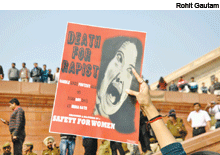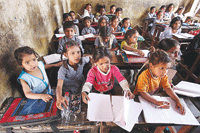Young Achievers
Maitreya Wagh
Writing a book is a long, tedious process meant for grown-ups but Mumbai lad Maitreya Wagh is already an author, at age 14. His debut fiction novel titled Investigations Redefined: The Family Fork (Power Publishers, Rs.299) a crime and suspense thriller — released at Crossword book store, Grant Road, Mumbai on January 28 — is […]






















Towards real quality education
JS Rajput is former director of NCERT and National Council for Teacher Education
Under s. 19 of the historic right to free and Compulsory Education (aka RTE) Act, 2009, all schools imparting elementary (classes I-VIII) education countrywide were obliged to fulfill certain infrastructure and other norms as specified in a special Schedule of the Act, within […]